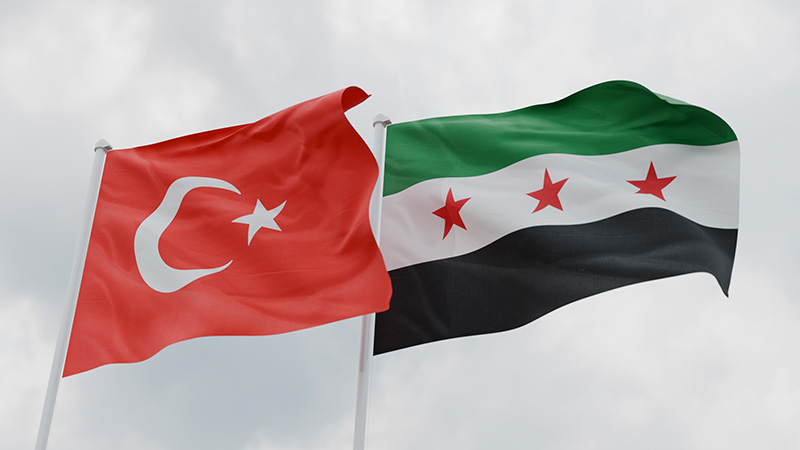
In a significant development signaling a shift in regional dynamics, Syrian interim President Ahmed al-Shara’a visited Turkey on Tuesday, February 4th. This visit, following his inaugural foreign trip to Saudi Arabia, marks a new chapter in Syria-Turkey relations. They have moved from a history of conflict to a potential era of cooperation, including discussions on a mutual defense pact.
A New Era in Relations
Turkish President Recep Tayyip Erdoğan will host al-Shara’a at his presidential compound in Ankara, as confirmed by Turkish head of communications Fahrettin Altun. Altun’s announcement outlined the agenda, stating, “During the talks to be held at the Presidential Complex, the latest developments in Syria will be discussed in all their aspects, and the joint steps to be taken by the two countries for the economic recovery, sustainable stability, and security in the country will be evaluated.”
This meeting signifies a remarkable turnaround from the Syrian Civil War era when Turkey actively supported various anti-Assad forces, including the Syrian National Army and even indirectly aided al-Shara’a’s group, the Hay’at Tahrir al-Sham (HTS). Now, the post-Assad era sees Turkey championing a new Syrian government, advocating for the lifting of sanctions against HTS and its leaders, including al-Shara’a.
Defense Pact and Military Bases
Syria’s Pivot Towards Sunni Allies
Al-Shara’a’s decision to visit Saudi Arabia before Turkey is being interpreted by many analysts as a strategic message to the Iranian regime. This move suggests a preference for aligning with Sunni powers in the region, potentially recalibrating Syria’s foreign policy after years of close ties with Iran during the Assad regime.
The potential establishment of Turkish military bases in Syria has raised eyebrows in Israel. While the discussions do not explicitly mention Israel, several Israeli security analysts suggest that the proposed defense pact is a response to Israel’s past airstrikes on Syrian military sites. These strikes were aimed at disrupting weapons transfers to Hezbollah along the Syrian-Lebanese border.
Both al-Shara’a and Erdoğan have adopted increasingly critical stances towards Israel. Al-Shara’a has issued warnings against any violations of Syrian territory, while Erdoğan’s rhetoric has also grown more hostile. The defense pact, therefore, could be seen as a deterrent against any future Israeli military action in Syria.
A Cautious Optimism for the Future
The meeting between al-Shara’a and Erdoğan represents a watershed moment for the region. The potential defense pact and the establishment of Turkish military bases within Syria would fundamentally alter the strategic landscape. While numerous details remain to be ironed out, the talks underscore a significant shift from conflict to cooperation between Syria and Turkey.
The international community will be closely watching the developments in Ankara. The outcome of these discussions will have far-reaching implications for the future of Syria, the balance of power in the Middle East, and the ongoing efforts to achieve lasting peace and stability in the region. The proposed defense pact could mark the beginning of a new security architecture for Syria, shaping its trajectory for years to come. With the Syrian Civil War concluded and with the Assad Regime no more, the world waits with bated breath to see what the future holds for this war-torn nation.
